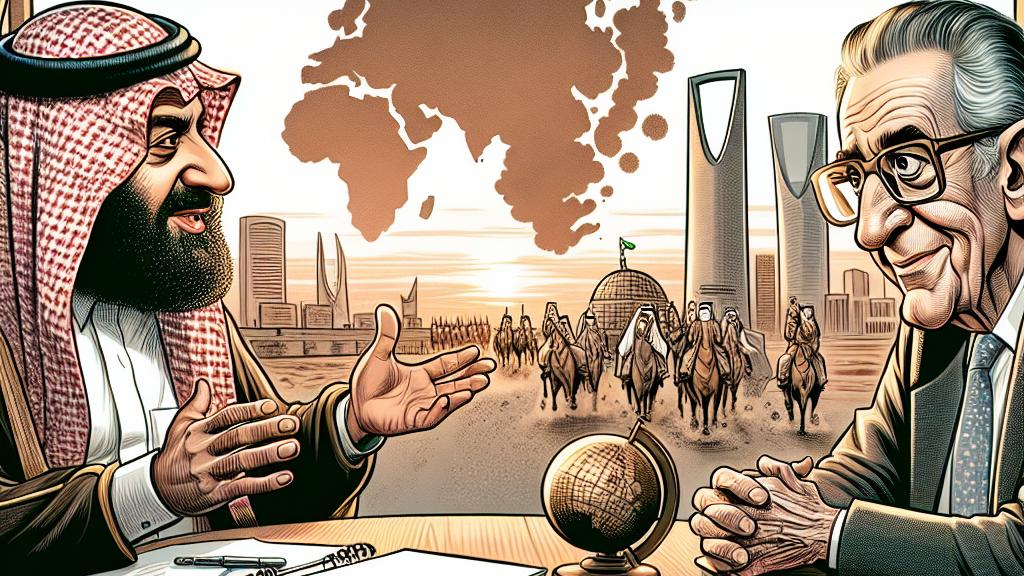Saudi Crown Prince Engages with Iran's Foreign Minister Amid Regional Tensions
Overview
- A landmark meeting between Saudi Crown Prince and Iran's foreign minister signals a shift in diplomacy.
- Focus on pressing regional issues and negotiations for ceasefires in conflict zones.
- Rising tensions exemplified by missile strikes highlight the fragile state of Middle Eastern peace.

Contextual Background of the Meeting
On October 10, 2024, in a pivotal moment for Middle Eastern diplomacy, Saudi Crown Prince Mohammed bin Salman hosted Iran's Foreign Minister Abbas Araqchi in Riyadh. This significant meeting underscores the complex historical context of relations between these two influential powers. For decades, Saudi Arabia and Iran have been embroiled in rivalry, yet this recent interaction marks a cautious step toward dialogue and potential reconciliation. Recent years have witnessed a slow thaw as both nations have recognized the dire need for cooperation amidst an increasingly intricate geopolitical landscape. During their discussions, the leaders emphasized pressing topics such as establishing ceasefires in Lebanon and Gaza, a clear indication of their commitment to finding common ground amidst the chaos.
Broader Implications of Regional Diplomacy
The burgeoning relationship between Iran and Saudi Arabia carries implications that extend well beyond their borders. Nations such as Djibouti and the Maldives have rekindled diplomatic ties with Iran, signaling a reshaping of regional alliances influenced by this newfound cooperation. Additionally, dialogues between the Iran-aligned Houthi movement in Yemen and Saudi officials present a promising opportunity for conflict resolution, emphasizing the potential for collaboration in lieu of further confrontation. This evolving landscape is reflective of a broader trend among nations reassessing their positions and seeking stability. The efforts made to initiate dialogue between historically rival nations are not just noble pursuits; they could prove instrumental in creating a more secure and peaceful Middle East.
Escalating Tensions and Future Challenges
Despite these optimistic diplomatic advances, the harsh reality remains: the Middle East continues to be marked by violence and instability. Iran's missile strikes targeting Israeli positions intensify fears of an expanded conflict, while the ongoing hostilities in Gaza serve as a grim reminder of the persistent turmoil plaguing the region. With the complex web of alliances and enmities constantly evolving, the need for a strategic international response is more urgent than ever. The balance between pursuing dialogue and addressing the multifaceted crises demands careful navigation by global actors. Engaging in meaningful conversations and fostering cooperation are vital; however, they must be paired with decisive actions to counter escalating threats. The journey toward lasting peace is undoubtedly difficult, yet it is one that we cannot afford to overlook.

Loading...